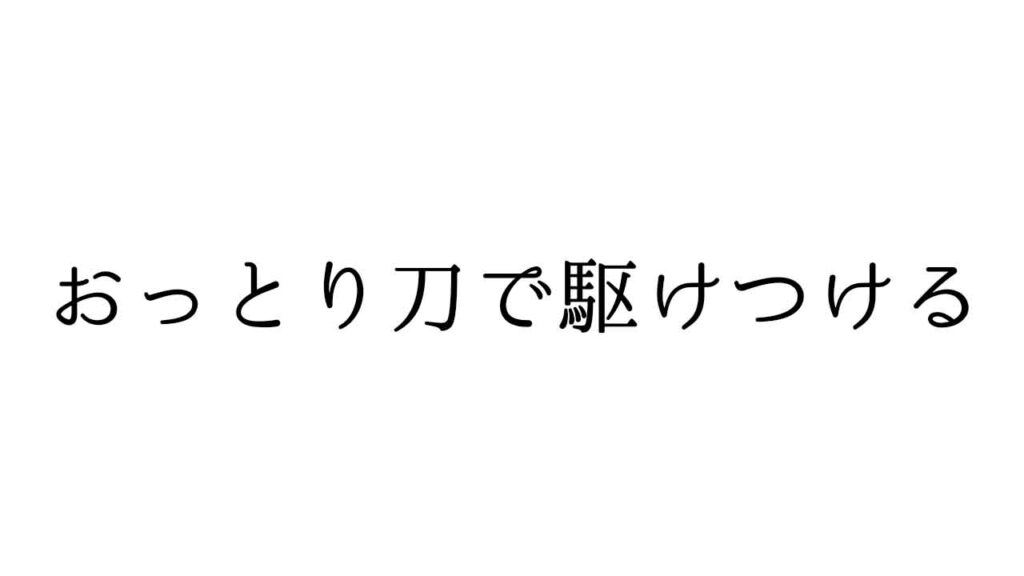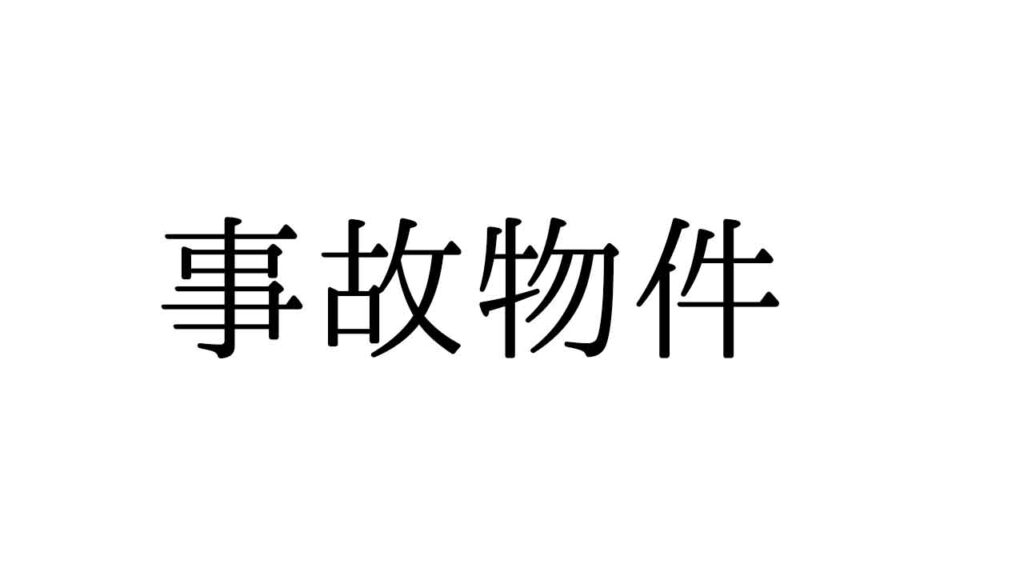A Phrase That Sounds Calm — But Means Urgent Action
In Japanese, the phrase “Ottori Gatana de Kaketsukeru” (おっとり刀で駆けつける) may sound puzzling at first glance. Many Japanese learners — and even some native speakers — are often thrown off by the word “ottori” (おっとり), which usually means “calm,” “gentle,” or “relaxed.”
At first, you might assume this phrase describes someone arriving slowly and leisurely at the scene. But in fact, the meaning is the complete opposite: it describes rushing to a location immediately, often in response to an emergency.
For example:
火事だと聞いて、おっとり刀で駆けつけた。
“When I heard there was a fire, I rushed over ottori-gatana.”
So how did a phrase that includes the word for “calm” come to mean “to rush with urgency”? The answer lies in samurai history.
The True Meaning of “Ottori Gatana”
The key to understanding this expression is not modern “ottori,” but the older term “ottori-gatana” (おっとり刀), which refers to a sheathed sword.
In feudal Japan, it was standard for samurai to draw their sword before running into battle or a dangerous situation. However, when someone was summoned so urgently that they didn’t even have time to draw their blade, they would dash off with their sword still sheathed. This image of running while clutching a sheathed sword represents extreme haste and immediate action.
In short:
- Ottori-gatana = sheathed sword
- Kaketsukeru = to run or dash somewhere
Thus, “ottori-gatana de kaketsukeru” paints a vivid picture: someone rushing into action so fast they don’t even take the time to unsheathe their weapon — ready to handle the situation as it unfolds.
When Is This Phrase Used Today?
Though we no longer live in the age of samurai, the expression remains widely used in modern Japanese to describe rushing into situations that require swift response.
1. In Emergency Situations
- クレームが入って、おっとり刀で現場に駆けつけた。
“A complaint came in, and I rushed to the site ottori-gatana.” - 地震速報を見て、おっとり刀で家に帰った。
“When I saw the earthquake alert, I immediately rushed home ottori-gatana to check on my family.”
2. For Sudden Work or Social Obligations
- 部長に呼び出されて、おっとり刀で会議室に行った。
“I was summoned by my manager and dashed to the meeting room ottori-gatana.” - 友人の事故を聞いて、おっとり刀で病院に駆けつけた。
“When I heard my friend had an accident, I rushed to the hospital ottori-gatana.”
Although there’s no actual sword involved, the phrase still captures the urgency and lack of preparation — running straight into the situation as it is.
Common Misunderstanding: The “Calm” Trap
For many Japanese language learners, the word ottori (穏やか・おっとり) can create confusion, since it usually describes someone who is easygoing and unhurried. However, in this idiom, ottori has nothing to do with one’s mood or behavior — it’s a reference to the sword, not the person.
This is an excellent example of how homophones and historical language layers can create surprising nuances in Japanese idiomatic expressions.
The Samurai Imagery Behind the Phrase
One reason this phrase has survived for centuries is its vivid connection to samurai culture:
- Samurai carried their swords everywhere — both their long katana and shorter wakizashi.
- A drawn sword symbolized readiness; a sheathed sword implied being caught off guard or rushing in immediately without preparation.
- The mental image of a warrior sprinting with a sheathed blade conveys both urgency and unhesitating responsibility.
This historical backdrop gives the phrase an added sense of duty and immediacy that still resonates in Japanese today.
Conclusion
Despite its misleading surface, “Ottori Gatana de Kaketsukeru” means “to rush to a location immediately, often in response to an urgent situation.” Far from describing a relaxed arrival, the phrase evokes a samurai dashing to the scene with their sword still sheathed — a powerful image of haste and readiness.
This expression remains widely used in modern business, daily conversation, and even news reports. Now that you know its origins and meaning, you can confidently use it when describing situations that call for quick and decisive action — no sword required!


